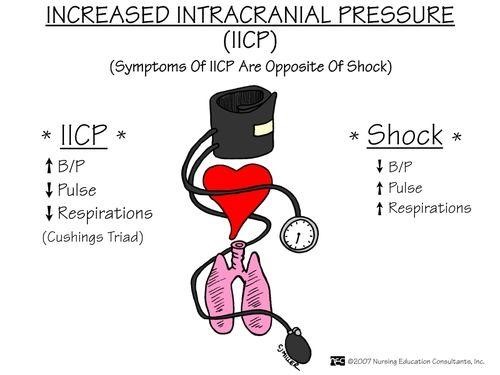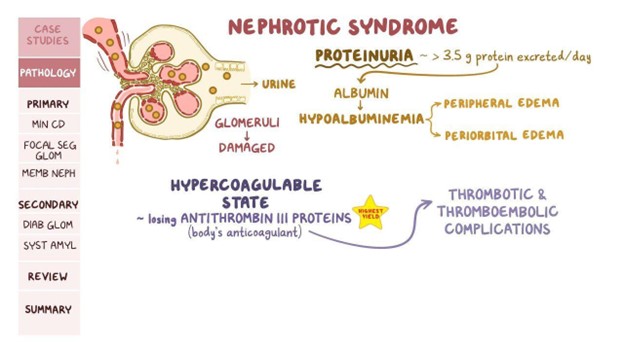A nurse is assessing an infant following a motor vehicle crash. Which of the following findings should the nurse monitor to identify increased Intracranial pressure?
Brisk pupillary reaction to light
Tachycardia
Increased sleeping
Depressed fontanelles
The Correct Answer is C

Nursing Test Bank
Naxlex Comprehensive Predictor Exams
Related Questions
Correct Answer is ["A","B","D"]
Explanation
A) Preventing further Urinary Tract Infections:
This is a relevant priority for patients with reflux. Vesicoureteral reflux (VUR) is a condition where urine flows backward from the bladder into the ureters and sometimes to the kidneys, increasing the risk of urinary tract infections (UTIs). Preventing UTIs is important because recurring infections can lead to more severe kidney problems and complications. Teaching patients and caregivers about hygiene, proper voiding techniques, and recognizing UTI symptoms is crucial to minimize the risk of infections.
B) Preventing kidney damage:
Preventing kidney damage is a significant priority for patients with reflux. If urine refluxes back into the kidneys, it can lead to kidney damage over time. This damage can affect kidney function and potentially lead to chronic kidney disease. Monitoring kidney function, managing UTIs promptly, and considering medical or surgical interventions to correct reflux are all important strategies to prevent kidney damage.
C) The chances of needing brain surgery:
The chances of needing brain surgery are not directly related to reflux. Reflux primarily involves the urinary system, specifically the flow of urine from the bladder to the kidneys. Brain surgery is not a relevant consideration in the context of reflux or its management.
D) Antibiotic usage teaching with the presence of an infection:
This is an important aspect of care for patients with reflux who develop urinary tract infections. UTIs are common complications of reflux, and appropriate use of antibiotics is crucial to treat infections effectively and prevent further complications. Teaching patients and caregivers about the importance of completing prescribed antibiotic courses, recognizing signs of infection, and adhering to medical advice is essential to manage UTIs in the presence of reflux.
Correct Answer is C
Explanation
A. "We worry about surgery. Do you think we should investigate direct donation of blood?"
Explanation: This statement doesn't show a clear understanding of nephrotic syndrome. Nephrotic syndrome is a kidney disorder that involves the kidneys' ability to filter blood, but it doesn't typically involve blood donation or surgery related to that. Direct donation of blood is not relevant to the treatment or management of nephrotic syndrome.
B. "We'll have to encourage lots of liquids. Did you say about Biters per day?"
Explanation: This statement suggests a misunderstanding of nephrotic syndrome and its management. Encouraging lots of liquids is generally not a primary concern in nephrotic syndrome. In fact, excess fluid intake might be counterproductive, as it could worsen edema (swelling) that often occurs with this condition. Additionally, the term "Biters per day" doesn't seem relevant to nephrotic syndrome or its management.
C. "My child really likes chips and bologna. I guess we will have to find something else."
Explanation: This statement indicates an understanding of dietary considerations related to nephrotic syndrome. Nephrotic syndrome involves protein loss through the urine, which can lead to low protein levels in the blood. To address this, dietary changes are often recommended to include foods rich in protein. Avoiding high-sodium foods like chips and bologna is also important, as excessive sodium intake can contribute to fluid retention and worsen edema.
D. "We understand the need for antibiotics, hope they can be given orally."
Explanation: This statement doesn't relate to nephrotic syndrome or its management. Nephrotic syndrome primarily involves issues with kidney function and protein loss, and antibiotics are not a standard treatment for this condition. Antibiotics are used to treat infections, which can sometimes be a complication of nephrotic syndrome due to the immune system's vulnerability, but the statement doesn't focus on the understanding of the disease itself.
Correct Answer: C. "My child really likes chips and bologna. I guess we will have to find something else."
Explanation: This statement shows an understanding of the dietary changes needed for a child with nephrotic syndrome. It acknowledges the importance of adjusting the child's diet to include protein-rich foods and avoid high-sodium options, which aligns with the nutritional considerations for managing nephrotic syndrome.

Whether you are a student looking to ace your exams or a practicing nurse seeking to enhance your expertise , our nursing education contents will empower you with the confidence and competence to make a difference in the lives of patients and become a respected leader in the healthcare field.
Visit Naxlex, invest in your future and unlock endless possibilities with our unparalleled nursing education contents today
Report Wrong Answer on the Current Question
Do you disagree with the answer? If yes, what is your expected answer? Explain.
Kindly be descriptive with the issue you are facing.
